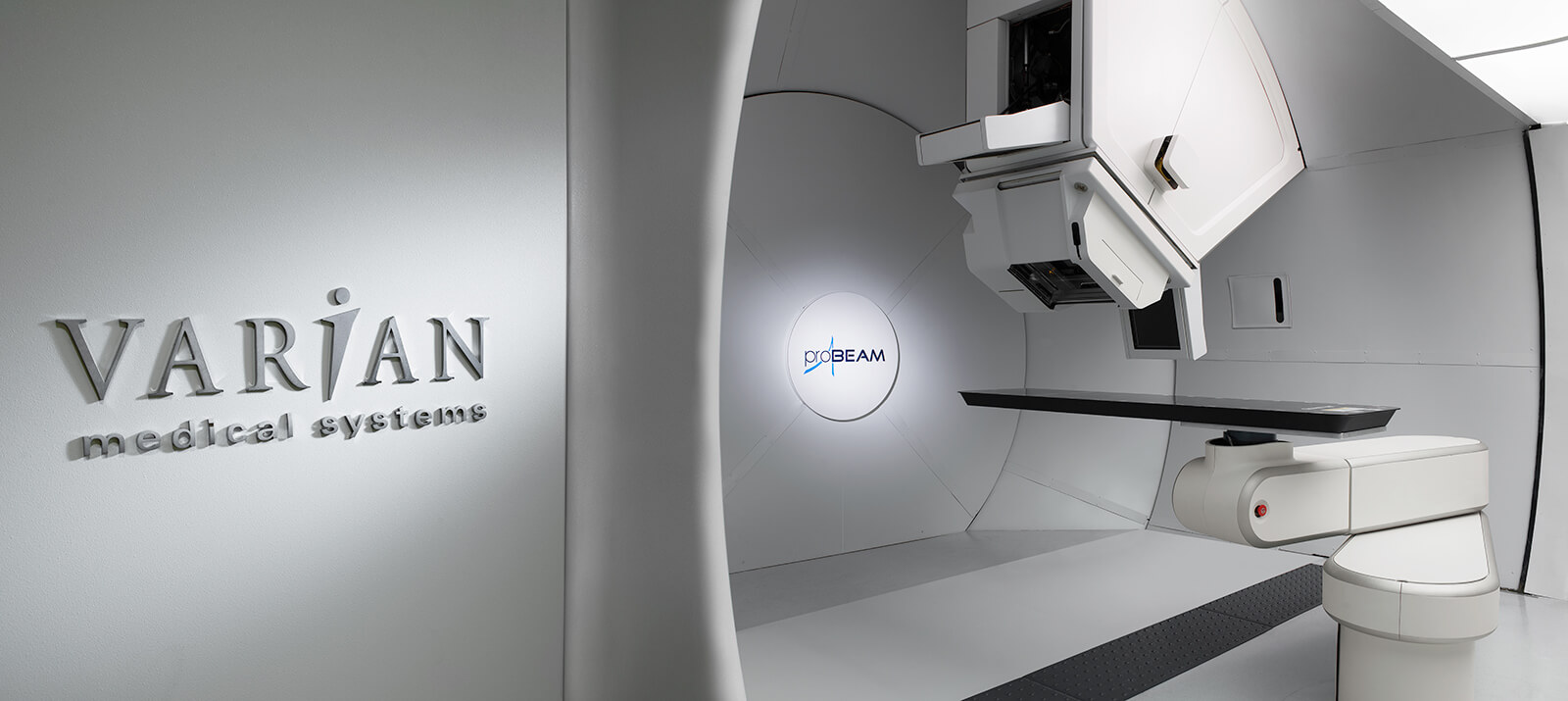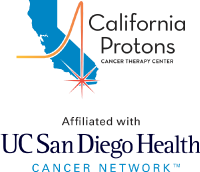Fight Esophageal Cancer
with Laser-like Precision
Proton Therapy for Esophageal Cancer
California Protons’ intensity-modulated pencil beam scanning technology is a highly precise form of cancer radiation treatment that enables our doctors to selectively target esophageal tumors with high-dose radiation within this sensitive and challenging area.
Compared with older passive-scattering proton therapy treatment, our pencil beam scanning technology precisely delivers radiation treatment for esophageal cancer within 2 millimeters and with the utmost care. We can attack tumors layer by layer and minimize harmful exposure to surrounding healthy tissue and organs. This is important for esophageal cancer patients given how closely the heart and lungs lie in relation to the esophagus. Excess radiation dose to these sensitive organs can result in radiation pneumonitis, lung complications, heart disease and heart failure. The reduction of radiation-related toxicity also increases the likelihood that patients can complete treatment with fewer interruptions or delays and minimizes the side effects of radiation to the esophagus.
Esophageal Cancer
Treatment Details
What We Treat
- Squamous cell carcinoma, which begins in flat, thin cells found in the surface lining of the esophagus, most often in the upper and middle portions
- Adenocarcinoma, which typically originates in glandular structures that secrete mucus
- Recurrent cancer
What We Do
- Target the tumor only
- Protect the stomach, heart, lungs and spinal cord
- Maintain your quality of life during treatment
- Reduce side effects of treatment, including pain with swallowing, nausea, vomiting, weight loss, heartburn and dehydration
- Lower the risk of secondary cancer due to radiation
Treatment planning analyses suggest that the radiation dose intended for the esophagus that is instead delivered to the heart along its path is significantly less with proton beam therapy:
Radiation dose delivered to the heart with X-ray radiation1
Radiation dose delivered to the heart with proton beam therapy1
Benefits of Proton Therapy for Esophageal Cancer

- Our pencil beam scanning technology precisely controls protons to place the Bragg peak—the point at which they deposit their maximum energy—directly in the tumor. This allows us to treat more complex tumor shapes and vary the dose within the tumor.
- Advanced proton therapy allows doctors to more selectively deliver high-dose radiation to cancerous esophageal tumors and tissues, and reduce the dose to surrounding healthy tissues and critical organs. In some cases, this has been shown to deliver higher cure rates than X-ray radiation treatment even in some of the most challenging situations.
- Reduced radiation to healthy tissues around the esophagus can significantly minimize damage to the heart, lungs, stomach and spinal cord and potentially reduce cardiac- and lung-related illness and death. This includes lowering the risk for radiation pneumonitis, lung complications, heart disease and heart failure.
- Specialized techniques can be used with proton therapy to target a moving tumor with great technical precision. This is important for esophageal cancer patients because every time you breathe, your esophagus moves.
- Unlike with older technology, the treatment plan can be loaded into the computer and completed within a matter of minutes. Treatments are also noninvasive and convenient so patients can get back to their daily activities quicker.
Is
Proton Therapy
Right for You?
Depending on the stage of esophageal cancer, combined treatments of endoscopic procedures, surgery, chemotherapy and radiation may be needed for some esophageal tumors. Treatment options are also affected by the type of esophageal cancer, age, overall health and personal preferences.
Treatment for
Recurrent Cancer
Proton therapy is often the best way to treat recurrent tumors in areas that have previously been treated with radiation therapy.
Treating previously irradiated areas can be challenging. The healthy tissues around the recurrent tumor do not fully “forget” the previous radiation dose, and any added dose continues to increase the risk of normal tissue injury. Proton beam therapy may enable doctors to better concentrate the dose to the target and limit it elsewhere, allowing re-treatment with radiation in select patients.
Treatment Outcomes &
Long-Term Effects
Proton therapy treatment at California Protons Cancer Therapy Center in San Diego may offer similar outcomes to standard X-ray radiation, while reducing long-term and potentially life-threatening side effects as radiation pneumonitis, lung complications, heart disease and heart failure due to radiation damage to the heart and lungs. It also may lower chances for secondary cancers later in life due to the reduced radiation exposure to your surrounding healthy tissues and organs.
However, all cancer treatments have advantages and disadvantages. Be sure to discuss all of the potential risks, as well as treatment options, with your oncologist.

